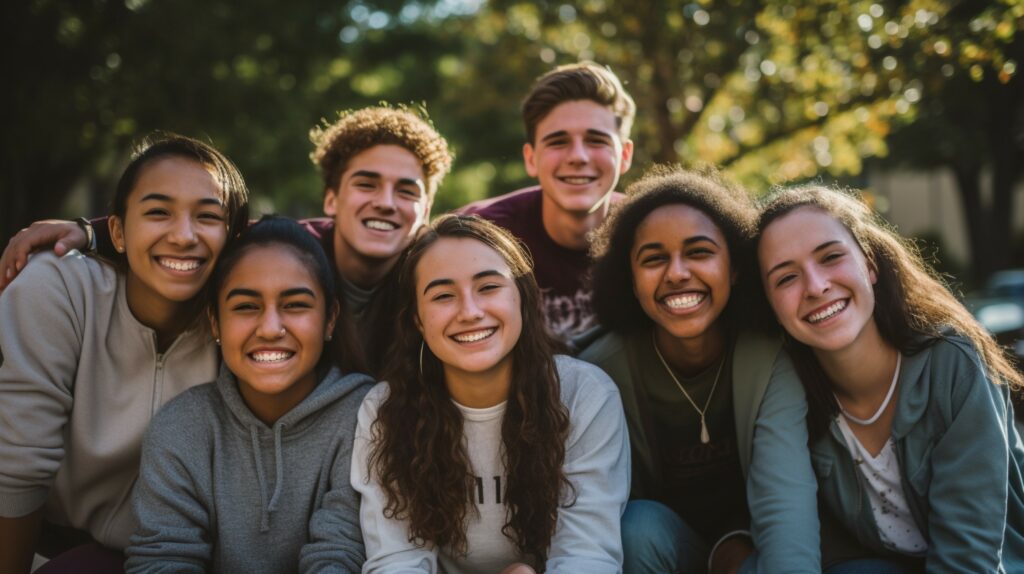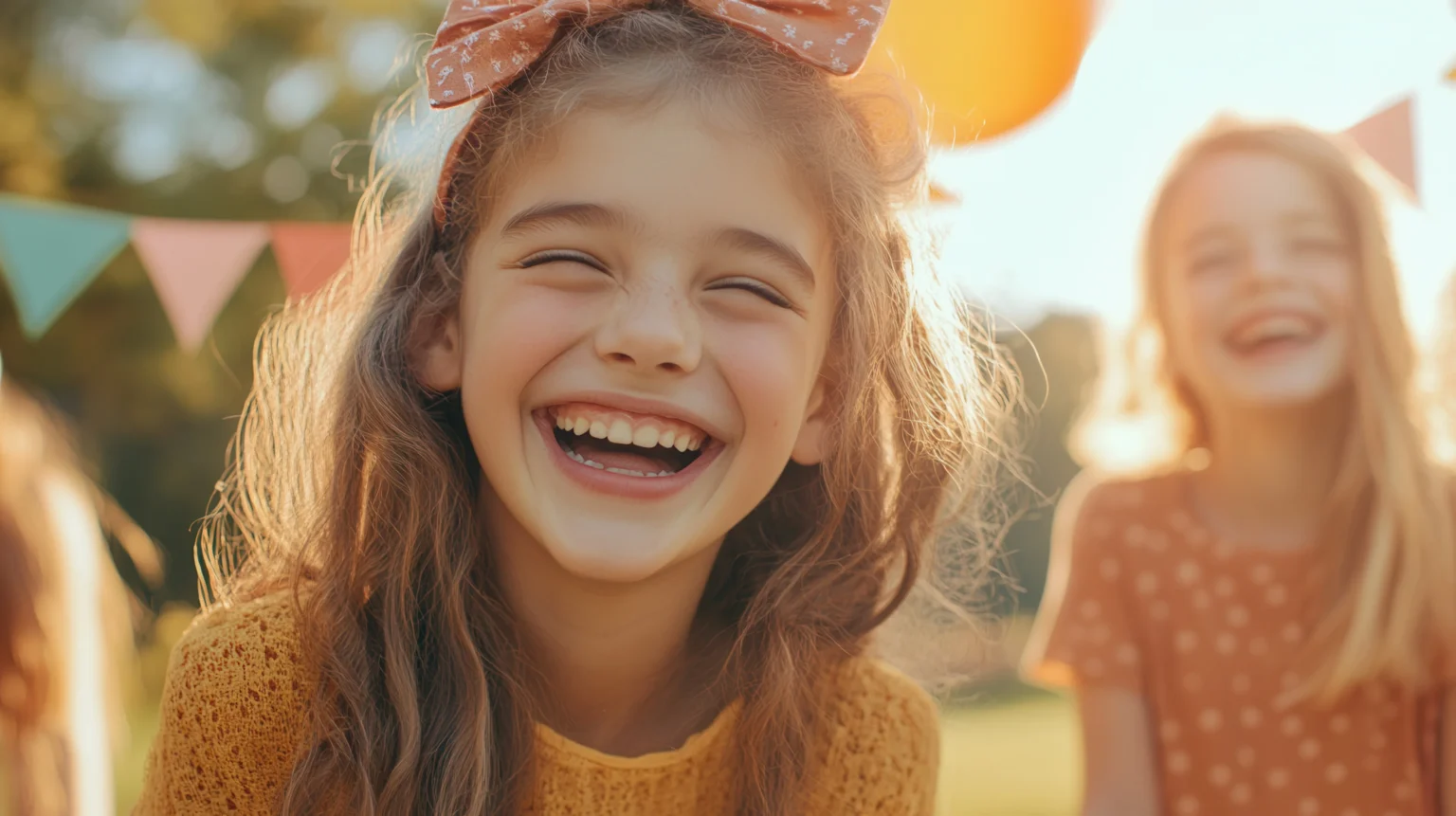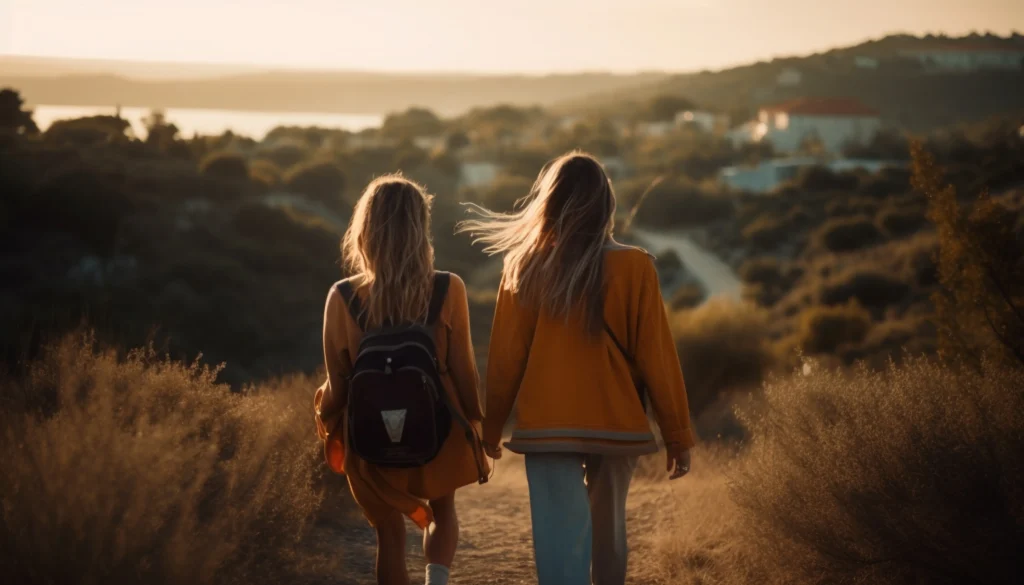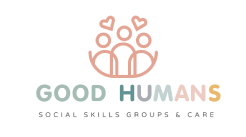Social Skills Groups
At Good Humans, our social skills groups are where learning meets laughter. Each session helps children and teens build communication, confidence, and real-life friendship skills in a way that feels natural and fun.
Maybe you have noticed your child getting stuck on their favorite topic, jumping into conversations at the wrong moment, or avoiding group settings altogether. Some children talk a mile a minute, while others hang back and want to connect but are not sure how.
Our groups give every child a chance to practice these moments in real time with gentle guidance from a clinician. We help them notice what works, make small adjustments, and try again with encouragement. It feels more like hanging out than therapy, and that is the point. Real growth happens when it feels real.

What Happens in Our Groups
Sessions are guided, playful, and full of small social moments that turn into big learning opportunities. Clinicians guide these moments as they unfold, helping each participant practice turn-taking, flexibility, and perspective-taking in ways that feel natural and lasting.
Our groups use the Skillstreaming curriculum, an evidence-based social skills framework that breaks social behavior into concrete, teachable steps. Each skill is modeled, role-played, practiced, and reinforced with immediate feedback from both peers and clinicians.
One of our group favorites is Skill 37: Keeping Friends Interested, which teaches how to balance talking and listening, notice when peers are engaged, and add questions that keep a conversation flowing. During these exercises, peers often rate each other’s social responses on a 1 to 10 scale, sharing feedback that feels genuine and motivating. This kind of peer-led feedback often has a stronger impact than adult praise because it feels authentic.
During group time, your child or teen might:
- Practice conversation flow using our Small-Talk visual tracker to balance questions and comments.
- Use our signature phrase, “chili-cheese fries,” a silly but effective way to remind the group when someone is being left out or to signal that it is time to bring everyone back into the conversation.
- Apply new strategies right away, adjusting tone, body language, or timing with real-time coaching.
In virtual sessions, we keep things just as interactive. The 

Why Social Skills Matter?
Social skills are about more than friendships. Research shows that strong social and emotional skills are linked to:
Better academic performance and school engagement (Jones et al., 2015)
Improved self-regulation and emotional resilience (Denham et al., 2012)
Stronger peer relationships and reduced bullying (Gresham, 2016)
Greater long-term success and well-being in adulthood (Wentzel, 2010; Moffitt et al., 2011)
Children who learn to communicate clearly, show empathy, and collaborate effectively do better both socially and academically. These are the life skills that build confidence and independence far beyond the classroom.
Between-Session Support
Our approach blends research-backed methods with creativity and fun, including:
- Behavior Skills Training (BST) which uses modeling, role-play, feedback, and reinforcement
- Peer-mediated learning where children learn from peers who model and encourage positive interaction
- Social-emotional coaching which helps participants notice feelings, read cues, and respond with empathy
- Skillstreaming which breaks social behavior into clear, teachable steps for lasting change.
We take what research tells us works and make it personal, practical, and fun.
What Makes Our Groups Different ?
- Led by a Board Certified Behavior Analyst (BCBA) who specializes in social-behavioral development
- Small group sizes so every child or teen can actively participate
- Groups are thoughtfully matched by age and social readiness so participants feel comfortable and confident with peers at a similar stage
- Data and progress tracking that feels natural, not clinical
- A hybrid format that includes virtual groups, in-person sessions, and monthly Skill-Trips
- Custom goals and activities designed around developmental level and group dynamics
Children and teens quickly learn that Good Humans groups feel different. They are fun, flexible, and built for real connection.

Caregiver Collaboration
We believe caregivers are part of the team. They receive check-ins, updates, and strategies to keep social progress going at home and school. Many families share that they start to see small but meaningful changes, like their child greeting a classmate, joining a group at lunch, or handling disappointment with more patience. Those everyday wins show that learning is sticking.
Who These Groups Are For
Our social skills groups are a good fit if you have noticed that your child or teen:
- Wants to make friends but is not sure how to start or keep the interaction going
- Tends to talk “at” others instead of “with” them, or misses cues that someone is ready for their turn
- Gets frustrated when games do not go their way or has a hard time being flexible with others’ ideas
- Feels anxious or unsure in new social settings, group activities, or unstructured play
- Connects more easily with adults or younger children than with same-age peers
- Could use guided practice with skills like joining a group, handling teasing, or staying engaged in conversation
Families often join when they want something more intentional than a playgroup but less formal than one-on-one therapy. The goal is to help each child or teen build friendships, confidence, and emotional regulation in ways that feel natural and real.
“When a child feels included, capable, and understood, connection becomes second nature.”
About Us
Company Details
Address
Inland Empire Office Coming Soon!
Phone
Services
copyright © 2025 Good Humans Social Skills Group & Care. All Right Reserved.
